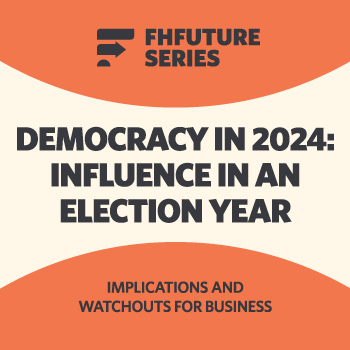How will Boris Johnson advance his domestic agenda beyond Brexit?
As his cavalcade arrived at Downing Street on 24 July, few could imagine what was really going on in Boris Johnson’s mind. He had meticulously planned his rise to the top from his halcyon days at Eton and his Presidency of the Oxford Union. With sky-high approval ratings as Mayor of London, his destiny appeared to be fulfilled after his two successful terms during the Cameron years.
However, Johnson’s leadership of the Leave Camp during the 2016 EU referendum has proven historically momentous. Brexit has unleashed wider forces that have impacted the ability of any British leader to personally direct political change. It has ironically shifted the political dial away from the very bread-and-butter issues that originally influenced the Brexit vote, such as addressing the cost of living and regional inequalities, to focusing on existential questions about Britain’s identity and place in the world. With a divided party and nation, the very survival of traditional party structures and the United Kingdom continues to be at stake. These are formidable barriers for Johnson to overcome in the coming months.
Learning from the past
Although he had given hints of policy announcements during his leadership campaign, Johnson’s first speeches as leader have sought to firmly re-orientate the political landscape towards his domestic priorities for the country post-Brexit, should the UK leave the EU as planned on 31 October. He has recognised that healing the UK’s identity crisis will involve addressing precisely those ‘burning injustices’ exposed by Brexit that Theresa May promised but failed to deliver, as they were side-tracked by the Brexit process over the last three years. Furthermore, in contrast to the managerial approach of his predecessor, he has consciously sought to inject optimism and charisma into public life, pledging to prove the ‘doubters’, ‘doomsters’, and ‘gloomsters’ wrong by leading the country into a new ‘Golden Age’.
One early example of this confident vision of ‘Global Britain’ being translated into reality is International Trade Secretary Liz Truss’ landmark announcement that the Government will set up Brexit ‘freeports’ outside the UK’s customs regime, thereby avoiding taxes on imports and containing the impact of tariffs from the EU. Johnson’s supporters have claimed the trade zones could create 150,000 jobs, regenerate areas of post-industrial decline, and generate billions for the economy.
Drawing on this feel-good factor, however, could be a significant miscalculation if the UK faces widespread economic disruption in a disorderly no-deal scenario. The Institute for Government, for example, has warned that there is “no such thing as a managed no-deal”, which would dominate the parliamentary timetable, place the economy on an emergency footing, and involve thousands of Civil Servants and at least £2 billion of contingency measures to defend basic supply-chains. The IfG concluded such an outcome would leave little space for Johnson’s “ambitious domestic agenda”.
Much has been said about the profound influence of Johnson’s new Special Advisers, especially Munira Mirza, who heads Number 10’s Policy Unit, and Dominic Cummings, arguably his most senior adviser, who is in favour of sweeping reforms to the Civil Service. Under Cummings’ direction, Number 10 has exercised significant control and discipline over all Government policy announcements. Special Advisers have also been reportedly instructed to draw up lists of departmental achievements and policy priorities. There is every indication that this is a slick, professional operation that will drive forward Johnson’s domestic policy agenda beyond Brexit.
Moreover, the elevation of staunchly Thatcherite ministers to the highest offices of state – Sajid Javid in the Treasury, Michael Gove in the Cabinet Office, Priti Patel in the Home Office, and Dominic Raab in the Foreign Office – strongly hints at Johnson’s desire to appease the Tory grassroots and the Right of the Conservative Party through an unapologetic embrace of free-market capitalism and muscular law and order policies at home and abroad.
However, Johnson has carefully backtracked from emphasising tax cuts for corporations and high-income earners. Instead, he has prioritised three populist issues that he thinks will resonate with a broad suite of voters between now and a possible General Election this Autumn. With the unmistakeable influence of Cummings all over it, his core promises include protecting the NHS and resolving the UK’s social care crisis, promoting law and order with 20,000 more policemen on the streets, and delivering Brexit, “do or die”, by 31 October.
He claims that this can be funded by a combination of the former Chancellor’s ‘fiscal headroom’ of £26.6 billion at the Treasury and the potential withholding of the £39 billion divorce bill in a no-deal. He has also pledged to honour an Australian-style, points-based immigration system, a key pillar of the original Vote Leave argument for “taking back control”.
Johnson’s so-called enthusiasm for ‘Boosterism’ – a combination of radical tax cuts and massive public services and infrastructure investment, designed to stimulate the economy – can be explained by his desire to reach left-behind communities and unite all parts of the UK, or as he memorably put it, “the awesome foursome”. Further examples of this strategy include his proposals for ending regional disparities in per-pupil school funding and hospital upgrades, the roll-out of full fibre broadband in rural areas, as well as investing more in Northern transport networks, which was illustrated most acutely following last year’s railways timetabling fiasco.
Looking to the future
In a future General Election, there is a risk of Labour promising to outspend the Conservatives on issues like the NHS or housing, whilst criticising the Government for u-turning on the very austerity policies it imposed on public services during the last decade. However, Johnson has calculated that his populist approach to domestic issues, combined with honouring the EU referendum mandate, can win back the trust of disaffected voters and core supporters, particularly those who defected en-masse from the Conservatives to the Brexit Party at the European elections in May.
In doing so, Johnson aims to distance himself from his weak predecessor and seize the impetus for public investment away from a Corbyn-led Labour opposition, tainted by association with reversing Brexit, ideological extremism, and anti-Semitism. He hopes that a credible and attractive policy agenda can win an outright majority in any General Election post-Brexit and shore up the support of his ERG and DUP allies, a factor which is multiplied tenfold by the Conservatives’ precarious position in the Commons. Only time will tell whether Parliament – or the public – will allow him a long enough spell in power to bring these policies to full fruition.
Richard Black, Public Affairs
Find Out More
-
Democracy in 2024: Influence in an election year
May 2, 2024
-
Platinum CMS Award
March 13, 2024


